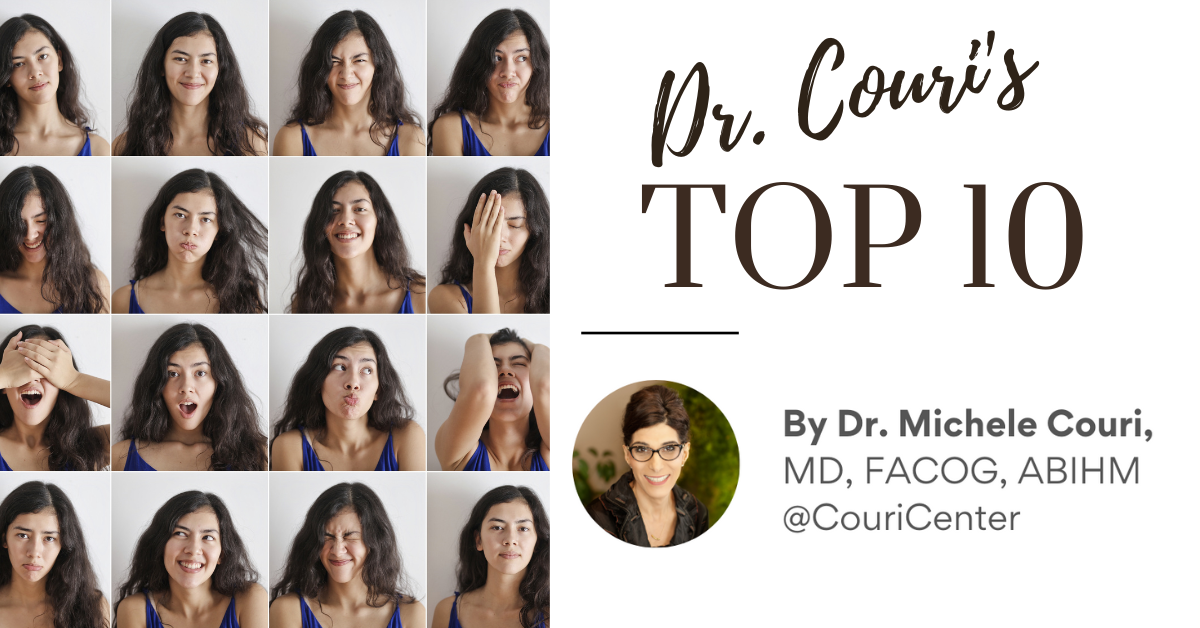
10 Facts about Mood & Menopause
- During menopause and early postmenopause, there is a 2- to 4- fold increased risk of depression.
- Mood changes, including depression and anxiety, are among the most common symptoms women experience during perimenopause – the time leading up to a woman’s last menstrual period, can frequently last for several years, and typically starts in a woman’s 40’s.
- One in five women ages 40 to 59 is on antidepressant medication. That number rises to one in four women who are 60 years of age or older.
- Contrast that to the fact that among women ages 18 to 39, one in ten are on antidepressants.
- Physicians worldwide are concerned that antidepressants are being overprescribed for menopausal symptoms.
- Hormone replacement therapy can be quite beneficial in improving mood symptoms in perimenopausal and menopausal women.
- Estrogen (Estradiol) regulates the synthesis, metabolism, and receptor activity of the well-known neurotransmitters linked to mood and depression – serotonin, dopamine, and norepinephrine.
- A 2018 study in JAMA Psychiatry included 172 peri- and early postmenopausal women and showed that those women who received hormone replacement therapy had more than a twofold reduction in the risk of developing depressive symptoms.
- The impact of estradiol treatment on depression appears to be independent of the hormone’s beneficial effect on hot flushes, night sweats, and sleep.
- In my opinion, a thorough evaluation of a woman’s mood symptoms is necessary to effectively formulate the best treatment plan. Because depression and anxiety can have multiple causes, women deserve a comprehensive evaluation and an integrative treatment plan, including stress reduction, lifestyle modification, the importance of healthy nutrition and exercise, and consideration of hormone replacement therapy, if indicated. I am in favor of using antidepressants when the clinical situation is appropriate, but the knee-jerk reaction of quickly prescribing an antidepressant while ignoring all of the above is often not the best long-term solution.
We’re here to help, at every stage of life. For an evaluation of your hormones or to discuss any unwanted symptoms of menopause, call 309-692-6838 or see FORM BELOW! New patients are always welcome.
To Your Health,
Dr. Couri
Sources:
Gordon, J, et al. Efficacy of Transdermal Estradiol and Micronized Progesterone in the Prevention of Depressive Symptoms in the Menopause Transition: A Randomized Clinical Trial. JAMA Psychiatry. 2018 Feb 1;75(2):149-157.
Rubinow D.R, et al. Efficacy of Estradiol in Perimenopausal Depression: So Much Promise and So Few Answers: Research Article: Efficacy of Estradiol in Perimenopausal Depression. Depress. Anxiety. 2015;32:539–549.
Bromberger, J., et al. Depression During and After the Peri-Menopause: Impact of Hormones, Genetics, and Environmental Determinants of Disease. Obstet Gynecol Clin North Am. 2018 Dec;45(4):663-678.
